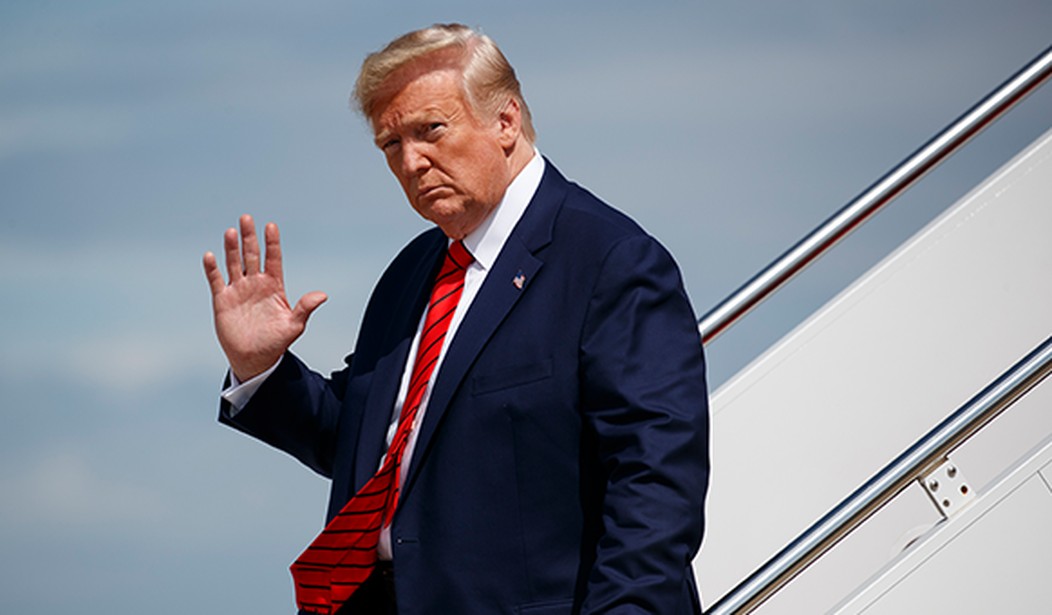Former Massachusetts Gov. William Weld, who is notionally challenging Donald Trump for the Republican Party's 2020 presidential nomination, last week claimed Trump is guilty of "treason, pure and simple." He added that "the penalty for treason under the U.S. Code is death."
Weld thus joined a long list of commentators and politicians in both major parties, including Trump himself, who casually tar their political opponents as traitors. Often, like Weld, they mean this literally, in which case they are demonstrably wrong. Sometimes they are just suggesting that the other side is disloyal and unpatriotic, in which case they are merely contributing to a poisonous political atmosphere incapable of supporting rational debate.
The basis for Weld's claim is the allegation that Trump, for crass political reasons, pressured Ukrainian President Volodymyr Zelensky to investigate former Vice President Joe Biden, a leading contender to oppose Trump as the Democratic nominee in next year's election, by delaying military aid that Congress had approved. Such conduct would be an abuse of presidential power as well as an illegal usurpation of the legislative branch's spending authority.
Contrary to Weld, however, Trump's alleged machinations do not qualify as treason. The legal definition requires waging war against the United States or "adher(ing)" to its enemies -- defined as nations or organizations that are at war with it -- by giving them "aid and comfort."
Ukraine is not at war with the United States, and in any event, Trump's alleged aim was not to help Ukraine but to help himself by getting its government to dig up dirt on a man who wants to take his job away. Weld, who as a former U.S. attorney certainly should know better, also erroneously claimed death is "the only penalty" for treason. The possible penalties include prison and fines as well as execution.
Recommended
Former White House adviser Stephen Bannon was likewise wrong when he said that meeting with a Russian lawyer promising dirt on Hillary Clinton, Trump's 2016 opponent, constituted treason. The president also has been falsely accused of treason by counterterrorism expert Malcolm Nance, political consultant Rick Wilson, former CIA Director John Brennan, former State Department official John Shattuck, presidential historian Jon Meacham and New York Times columnist Charles Blow, to name a few.
Trump himself, of course, is not shy about deploying the T-word. In his view, the administration officials who communicated their concerns about his July 25 telephone conversation with Zelensky thereby committed treason.
The argument that Trump obstructed justice when he tried to stop or limit special counsel Robert Mueller's investigation of Russian efforts to influence the 2016 presidential election, Trump said, was an "illegal and treasonous attack on our Country." The Mueller investigation itself was a "Phony & Treasonous Hoax" involving "treasonous acts," according to the president.
When The New York Times published an anonymous op-ed piece by an administration official who was critical of the president, that was also "treason" in Trump's book. So was Democratic opposition to his immigration policies.
Even failing to applaud Trump during his State of the Union address might qualify as treason, he suggested last year. "Somebody said 'treasonous,'" he said during a visit to Cincinnati. "I mean, yeah, I guess, why not? ... They certainly didn't seem to love our country very much."
Needless to say (I hope), a lack of enthusiasm for the president is not the same as a lack of love for "our country." Nor is criticizing U.S. policies the same as hating the United States, notwithstanding the president's love-it-or-leave-it attitude.
Frederick Douglass, the classical liberal abolitionist whom Trump claims to admire, argued that "the best friend of a nation is he who most faithfully rebukes her for her sins -- and he her worst enemy, who, under the specious and popular garb of patriotism, seeks to excuse, palliate, and defend them." Nowadays both the president and his opponents routinely cloak their diametrically opposed agendas in that specious garb.
Jacob Sullum is a senior editor at Reason magazine. Follow him on Twitter: @JacobSullum. To find out more about Jacob Sullum and read features by other Creators Syndicate writers and cartoonists, visit the Creators Syndicate webpage at www.creators.com.

























Join the conversation as a VIP Member